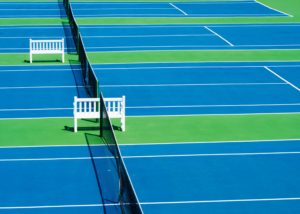Sports counseling can help people increase their athletic, personal, and academic potential. Movement and sports represent an integral part of our identity across our life span. The lessons, strategies, and problem-solving approaches that people learn when being engaged in athletic pursuits easily transfer to life at large. Rather than focusing single-mindedly on game-time performance, counseling takes a holistic point of view and considers individual’s overall mental well-being and psycho-emotional needs.

Why Try Sports Counseling?
There is stigma about seeking sports counseling for some people. Asking for help for anything other than athletic goals may be difficult. Unburdening to a counselor may feel weak or frivolous. Clients come to realize that the game happens in your mind and that is what we start with. Everyone experiences emotional struggles, and counseling can help work through these challenges. Once athletes become comfortable with the counselor, they are usually very motivated and driven to make positive changes and to execute on their treatment plans.
Brainspotting and Athletic Performance
Brainspotting is an amazing type of therapy that allows the counselor and the client to locate, focus, process and release experiences and symptoms that may be out of reach of the conscious mind. Brainspotting can be very effective in freeing athletes of performance blocks and slumps, as well as encouraging peak performance. Brainspotting can result in physical healing and pain reduction as well as providing freedom from emotional suffering.
Athletes often suffer from the cumulative effect of “little” traumas (traumas not resulting in PTSD) throughout their lives, caused by injuries, humiliating experiences, child abuse, poor performance, abusive coaches etc. These traumas can reach a critical mass and become debilitating and limit performance. The harder the individuals practice to overcome performance blocks, the worse they can become. Because trauma memories are usually stored in the unconscious mind and in our bodies, they cannot always be addressed through more conventional sports psychology methods based on Cognitive Behavioral Therapy (CBT) like visualization and positive self–talk.
Is My Counselor a Great Athlete?
Counselors do not need to be great athletes to treat one. Just like great players do not necessarily make great coaches, competent sports counselors need educational and professional training instead of shining athletic ability. As your counselor, I am open to exploring the unique culture, the language, the meaning, the traditions, and the values surrounding your sport, as well as the expectations and the discrimination that you face on and off the field.
What Happens in a Counseling Session?
Counseling sessions can focus on helping people with professional development and building life skills, such as leadership, character, financial competence, career management, and dealing with relationship challenges. Athletic success is as much a function of personal strength and emotional resilience derived from family, relationships, and spirituality, as at is of physical strength and ability.
Brainspotting and CBT for Athletes
I utilize Brainspotting to encourage optimal performance in athletes and Cognitive Behavioral Therapy (CBT) to enable athletes to increase their performance-enhancing thoughts and behaviors, and decrease interfering thoughts.
Brainspotting addresses the mind and body experience that often lies beyond words. It can clear the brain and body of these negative traumatic memories, and permanently restore and enhanced performance. Dr. David Grand discovered Brainspotting in 2003 while working with an athlete. Watch this short video about it – Brainspotting for Performance.
CBT can improve one’s current behavioral patterns through self talk, goal-setting, and imagery. There is evidence that positive self-talk increases task performance and confidence, which can dramatically decrease anxiety. Understanding the influence of one’s emotions by challenging self-handicapping cognitions and negative behaviors can have a significant impact on motivation and physical functioning.
Elaine’s Blog Posts on Sports Counseling
Here is the link to interesting articles for my Sports Counseling clients – https://askcounseling.com/category/sports-counseling/
Elaine’s Brainspotting Resources
Here is the link to books, websites, videos and research on Brainspotting – Brainspotting Resources
